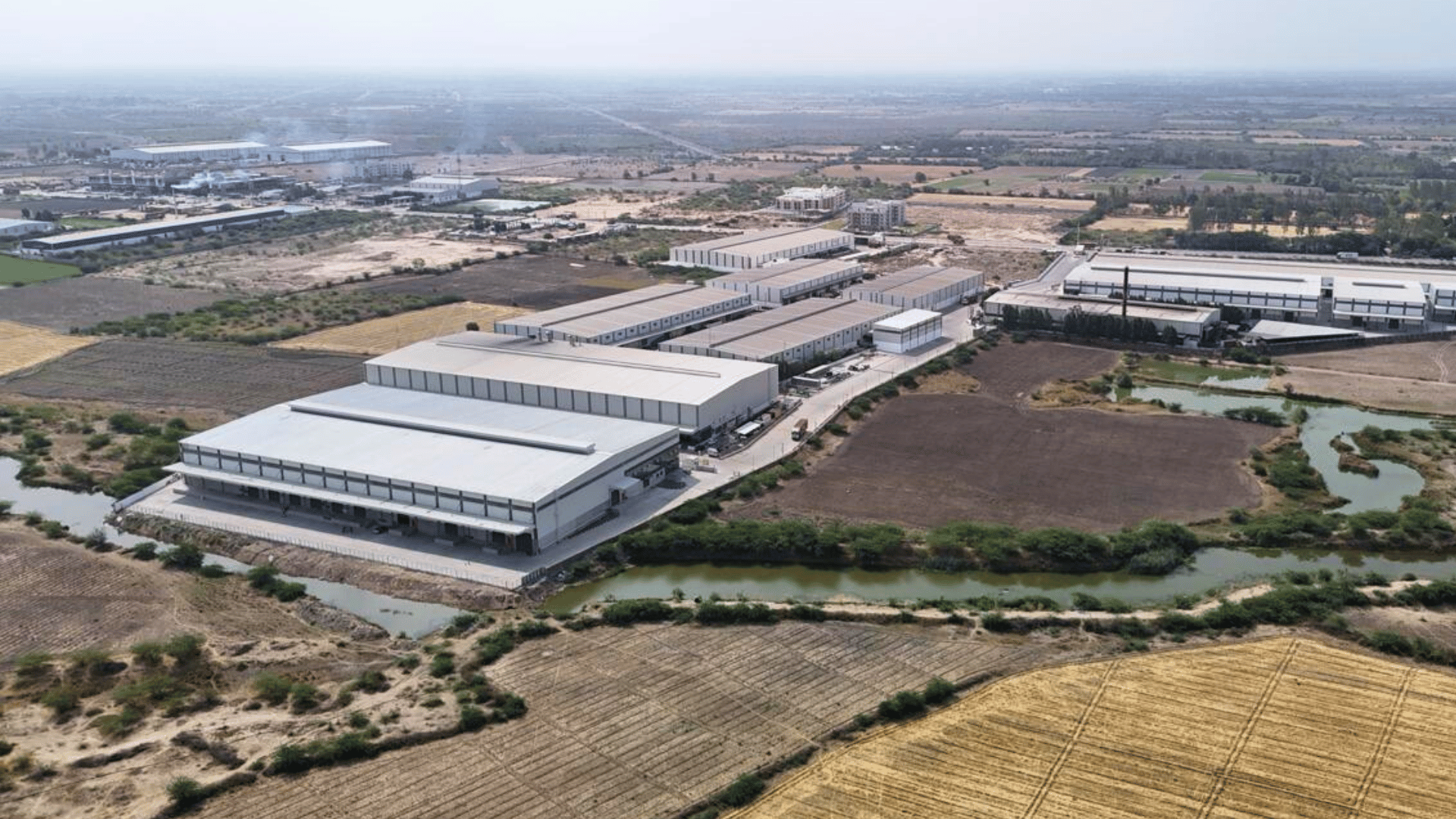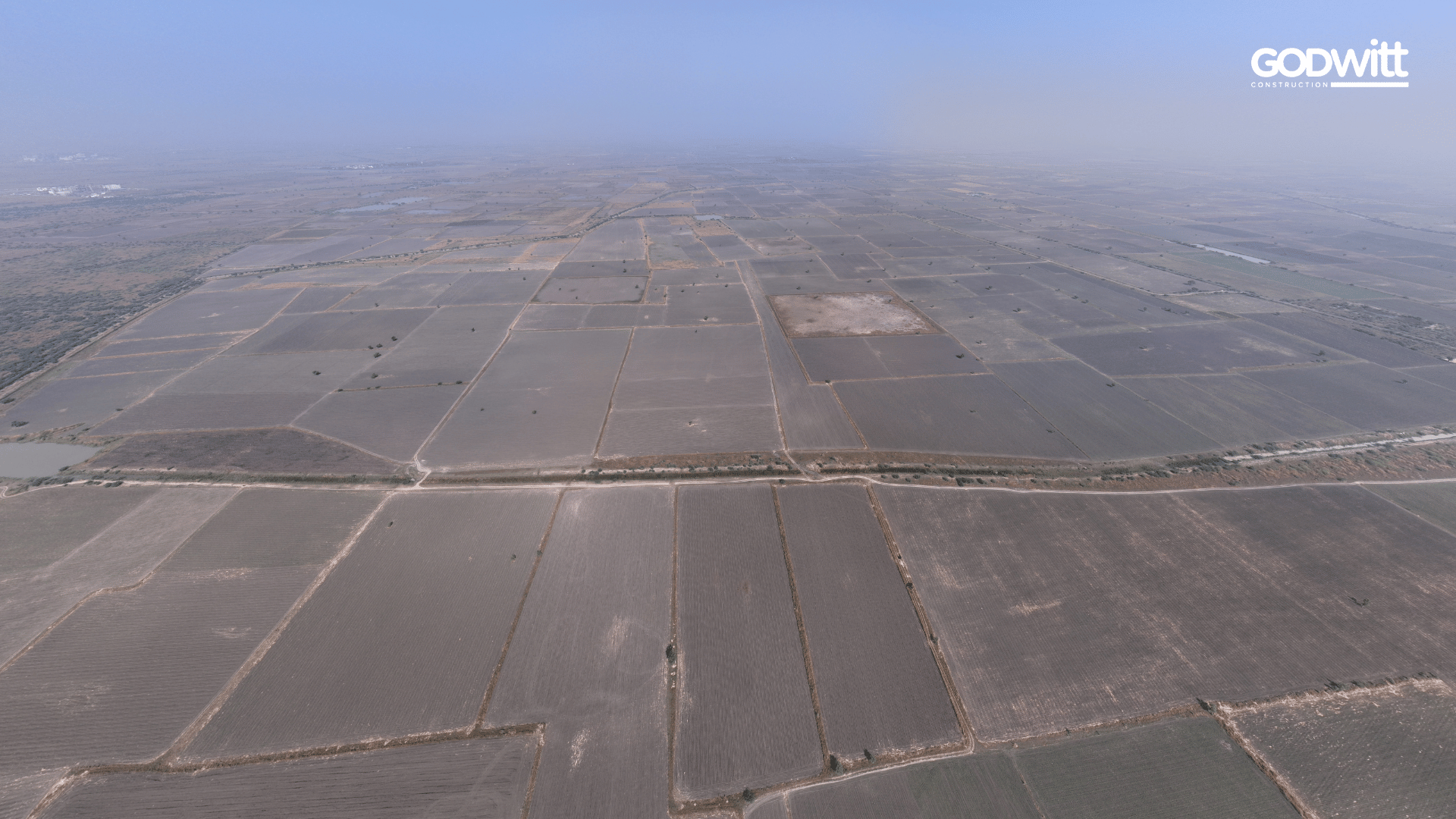Exploring Drones in Construction: Enhancing Efficiency and Safety

In the evolving landscape of industrial development, drones are no longer just flying cameras; they are a core component of modern construction intelligence. At Godwitt, drones are transforming the way we survey, monitor, inspect, and even market our projects.
From pre-construction mapping to stakeholder engagement, the use of drones in construction has brought unmatched accuracy, speed, and insight into every phase of project development. Nowhere is this more evident than in recent projects, where drone mapping enabled a complete contour survey, delivering terrain data with pinpoint precision in a fraction of the traditional time.
.png)
Drones for Construction: Transforming the Construction Industry Today
Drone Mapping in Construction: Precision from the Sky
Our use of drones begins before a single excavator touches the ground. Take a look at what drones delivered:
- A topographic model with latitude, longitude, area, and elevation
- Surveying results in hours, not days
- Elimination of tedious manual processes like placing prism sticks every 3 metres
Traditional Surveying vs. Drone Surveying
Drones enable faster decision-making, immediate design alignment, and accelerated project initiation.

.png)
.png)
Drones in Construction Monitoring: Eyes That Never Blink
Why It Matters
Progress tracking in construction sites is no longer dependent on site visits or manual updates. With drone-enabled aerial imaging, we:
- Generate real-time views for daily or weekly progress
- Overlay drone data with CAD files to spot deviations early
- Build photogrammetric 3D models for structural accuracy
- Provide visual progress reports to occupiers, investors, and leadership
This visual intelligence enables collaboration with minimal course correction without delay and transparency without effort.
Drone Use for Safety, Compliance & Risk Mitigation
In large and complex construction projects, safety is non-negotiable. Drones offer:
- Access to hazardous areas without risking human lives
- Visual safety audits that don’t interrupt construction work
- Compliance documentation with timestamped records
- Fewer dependencies on third-party inspections
By reducing the need for physical scaffolding and manual inspections, drones help us maintain strict safety standards without slowing down execution.
.png)
Aerial Storytelling: Marketing, Documentation & Digital Experiences
Drones are just as effective in the boardroom as they are on the construction site. At Godwitt, they enable us to:
- Create compelling aerial videos and visuals for brochures and websites
- Capture before-and-after comparisons that tell a powerful transformation story
- Offer virtual walk-throughs for investors and occupiers
- Integrate drone visuals into digital twins and marketing narratives
In industrial real estate, scale is hard to describe; drones help us show it instead.
Drone Surveillance: Smarter Site Security
For large industrial parks, especially in remote areas, drones are emerging as the go-to tool for 24/7 site visibility.
- Conduct perimeter patrols during off-hours
- Monitor material yards and stockpiles
- Capture real-time movement on-site
- Raise automated alerts for unauthorised access
.png)
Drone-based security adds a layer of intelligence that static cameras or guards simply can’t match.
Drones Post-Handover: Inspection & Maintenance Made Easy
Even after construction ends, the drone advantage continues:
- Inspect electrical infrastructure, including substations and poles
- Check drainage lines, rooftops, and façade integrity
- Diagnose maintenance issues without setting foot on scaffolding or ladders
- Keep visual records for asset lifecycle documentation
These capabilities are key to delivering long-term operational reliability and maintenance efficiency.
Why Drones Work for Godwitt
The Future: From Visual Aid to Autonomous Insight
Godwitt’s drone program is rapidly evolving. We're currently exploring AI-integrated drone analytics to:
- Predict delays or risks based on visual pattern recognition
- Automate quality control by detecting construction deviations in real time
- Flag anomalies before they cause bottlenecks
- Use drone feeds not just for viewing, but for actionable decision-making
What was once a "nice to have" tool is becoming central to how we build, track, and deliver industrial real estate.
Conclusion
The aerial advantage is no longer optional; it’s essential. Drones in construction bring together speed, safety, and intelligence, helping us build the future faster and smarter. At Godwitt, we’re not just flying drones, we’re flying ahead.

Why to sign up for a newsletter
Open













